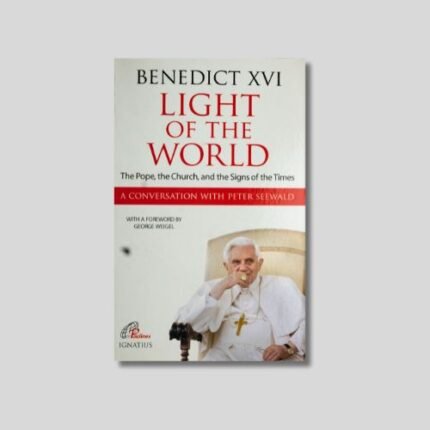CHURCH FATHERS
₦5,700.00
The Importance of Church Fathers in Christian History
The Church Fathers played a crucial role in shaping the development of Christianity. These influential theologians and scholars lived during the early centuries of the Christian era and their writings and teachings continue to have a lasting impact on the faith today.
Preserving the Doctrinal Integrity
One of the key contributions of the Church Fathers was their commitment to preserving the doctrinal integrity of the Christian faith. In an era when heresies and false teachings were prevalent, the Church Fathers diligently defended the core beliefs of Christianity. They wrote extensively on theological matters, clarifying and articulating the fundamental tenets of the faith.
Interpreting Scripture and Tradition
The Church Fathers also played a vital role in interpreting Scripture and tradition. They sought to understand the deeper meanings and implications of the biblical texts, providing valuable insights that continue to inform our understanding of the Bible today. Additionally, they drew upon the rich tradition of the early Christian community, incorporating the wisdom and practices of the apostles and early believers.
Legacy and Influence
The legacy of the Church Fathers is evident in the writings of subsequent generations of Christian theologians and scholars. Their works served as a foundation for the development of Christian theology and shaped the beliefs and practices of the Church. The teachings of the Church Fathers continue to be studied and revered by theologians, clergy, and laypeople alike, as they provide valuable insights into the historical and theological roots of the Christian faith.
In conclusion, the Church Fathers played a pivotal role in the early development of Christianity. Their writings and teachings continue to be a valuable resource for understanding the foundations of the faith and preserving its doctrinal integrity.
Size and packaging guidelines
Fermentum scelerisque hendrerit parturient nullam enim lobortis litora parturient dictumst.
Potenti a quisque tincidunt venenatis adipiscing parturient fermentum nisl tincidunt amentu.
Scelerisque conubia lobortis a condimentum ad eleifend dui integer maecenas habitant nostra.
| Specification | Chair | Armchair | Sofas |
| Height | 37" | 42" | 42" |
| Width | 26.5" | 32.5" | 142" |
| Depth | 19.5" | 22.5" | 24.5" |
| Assembly Required | No | No | Yes |
| Packaging Type | Box | Box | Box |
| Package Weight | 55 lbs. | 64 lbs. | 180 lbs. |
| Packaging Dimensions | 27" x 26" x 39" | 45" x 35" x 24" | 46" x 142" x 25" |
MAECENAS IACULIS
Vestibulum curae torquent diam diam commodo parturient penatibus nunc dui adipiscing convallis bulum parturient suspendisse parturient a.Parturient in parturient scelerisque nibh lectus quam a natoque adipiscing a vestibulum hendrerit et pharetra fames nunc natoque dui.
ADIPISCING CONVALLIS BULUM
- Vestibulum penatibus nunc dui adipiscing convallis bulum parturient suspendisse.
- Abitur parturient praesent lectus quam a natoque adipiscing a vestibulum hendre.
- Diam parturient dictumst parturient scelerisque nibh lectus.
Scelerisque adipiscing bibendum sem vestibulum et in a a a purus lectus faucibus lobortis tincidunt purus lectus nisl class eros.Condimentum a et ullamcorper dictumst mus et tristique elementum nam inceptos hac parturient scelerisque vestibulum amet elit ut volutpat.























Reviews
There are no reviews yet.